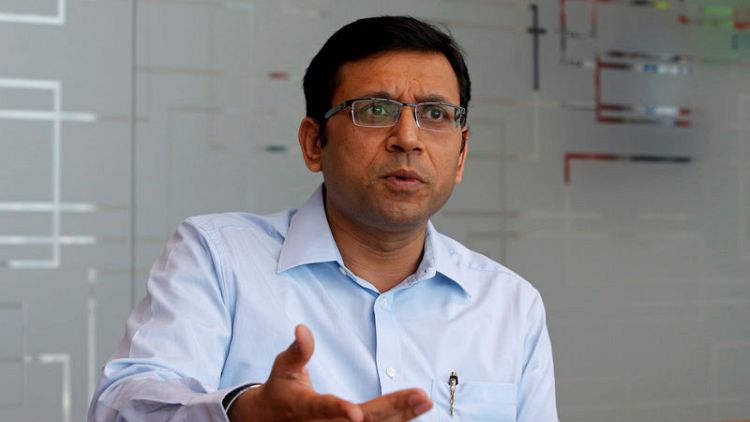By Abhirup Roy
MUMBAI (Reuters) - India's HDFC Standard Life Insurance is looking to invest in high-yielding Indian corporate bonds rather than longer-term government securities, saying a recent easing of inflation may not last and fiscal worries linger.
The return on a 5-year corporate bond was currently more attractive than buying a 30-year government security, HDFC Life's Chief Investment Officer Prasun Gajri told Reuters in an interview on Friday.
"My view is that this is not the time to really play duration. This is a time to play the spreads and just sit on it," he said. "That will eventually make me more money than any duration strategy in my mind."
HDFC Life has about 1.13 trillion rupees ($16 billion) in assets under management, of which 68 percent is invested in debt and the rest in equities.
Corporate bond yields have been rising, mainly because a series of debt defaults by Infrastructure Leasing and Financial Services Ltd (IL&FS), one of India's largest non-banking financial companies, has raised worries of a credit crisis in the country and led to tighter liquidity.
In contrast, a sharp fall in global crude prices and an easing of domestic inflation have led to waning expectations of an interest rate hike by the central bank, pushing the benchmark 10-year government bond yield lower in the past two months.
But Gajri said predicting the movement of oil prices was difficult and despite a recent fall in food inflation, there was no hard evidence of the trend sustaining.
"I would not be very surprised if food inflation suddenly comes back. It is extremely volatile," Gajri said. "I don't trust anyone's number on food inflation."
Gajri said uncertainty about the size of the Indian government's fiscal slippage was another concern.
India Ratings and Research said this week that India was set to miss its 2019 fiscal deficit target of 3.3 percent of GDP due to a shortfall in revenues and lower-than-targeted disinvestment proceeds and an estimated fiscal deficit of 3.5 percent.
Moreover, Gajri said concerns about a slowdown in global economic growth and a U.S.-China trade war would affect emerging markets going forward.
HDFC Life has marginally increased the average weighted maturity on its bonds in the past few months to about 4-4.5 years but might look to cut that slightly.
On equities, Gajri said he expected that a recovery in Indian corporate earnings was just around the corner, driven largely by private sector banks with exposure to corporate clients as bad loans wane, credit costs fall and margins improve.
Declining bad loans would lead to credit availability and help boost other sectors as well, Gajri said. "That leads to a lot of multiplier effects on the economy."
Gajri also said he expected capital goods, a sector he has been bullish on this year, to further benefit from an acceleration in India's economic growth and a pickup in private capital expenditure in the next 12 months.
($1 = 69.6150 Indian rupees)
(Reporting by Abhirup Roy; Editing by Susan Fenton)



